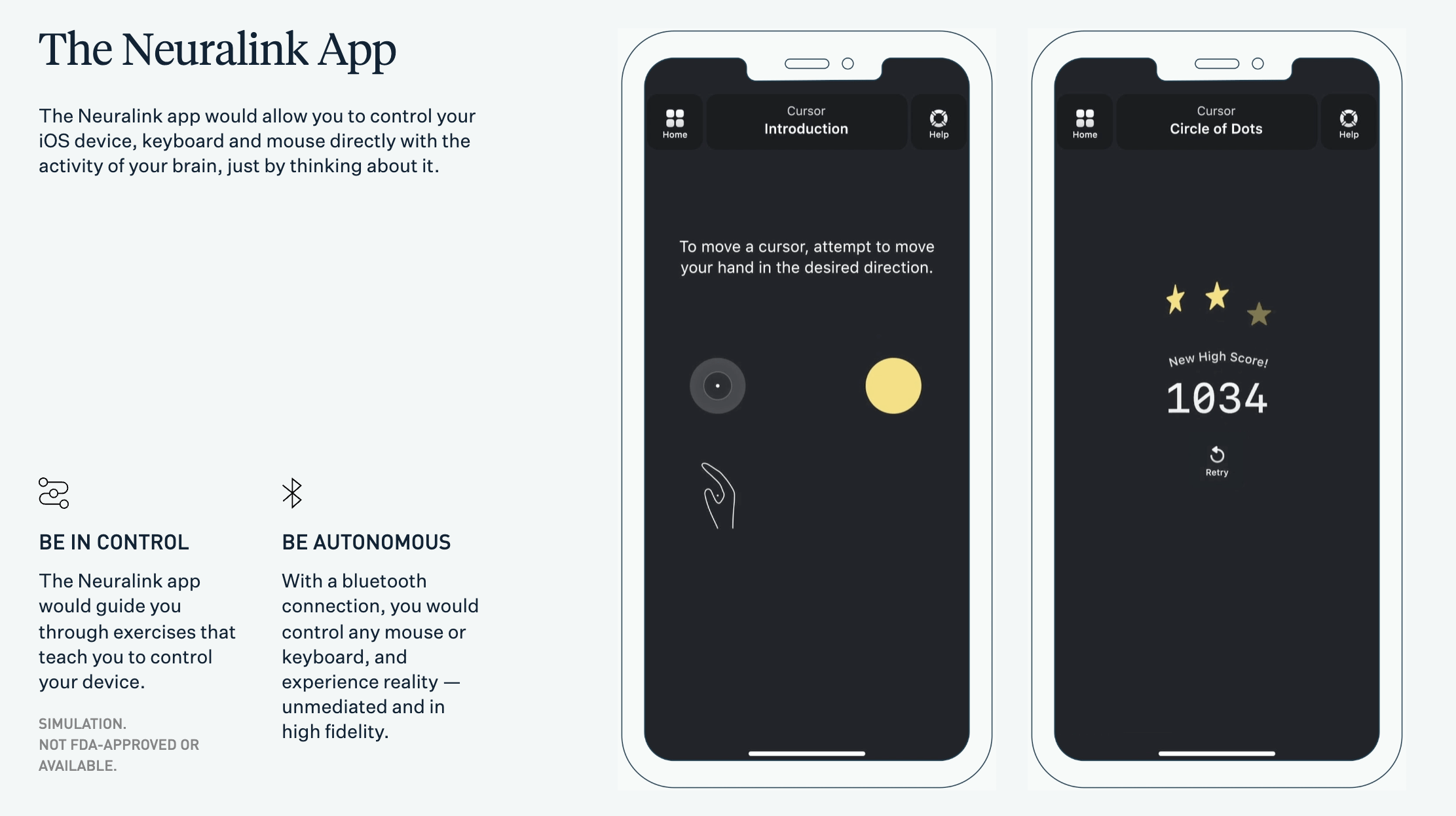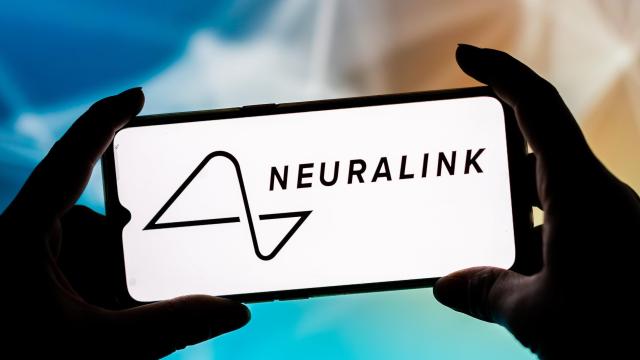Elon Musk believes humans will one day use implantable brain computer interfaces to achieve a “symbiosis” between humans and artificial intelligence, preferably his. Six years out from founding his company Neuralink, new polling suggests the public still has little interest in this futuristic possibility. Overwhelmingly, respondents seemed more likely to view the prospect of implantable chips as closer to a dystopia.
An overwhelming majority (78%) of U.S. adults surveyed in a Pew Research report shared with Gizmodo said they would not personally want an IQ-enhancing brain chip implant even if they were available. Just 13% of those respondents said they thought the types of implants espoused by Musk and others seemed like a good idea for society at large. A much larger share — 56% — believe that tech will be bad for society. (Gizmodo reached out to Neuralink for comment but has not heard back.)
Over half (57%) worried the widespread use of these types of brain interfaces could potentially widen the already gaping distance between high and low-income Americans. And even if these Cyberpunk-esque features do eventually make their way to market, only slightly less than a quarter of respondents think all that new processing power will actually improve human decision making. These respondents were specifically asked about brain implants used to potentially process information more quickly and efficiently. Faster, it seems, isn’t always better.
Though very few Americans surveyed seemed willing to go to bat for cognitive-enhancing brain chips at the societal level, there are some circumstances where individuals say they’d be more willing to use one themselves. Around 60% of respondents, for instance, said they’d be comfortable if they could turn the effects of the chip on and off. Meanwhile, 53% said they’d be comfortable with a BCI if it didn’t require surgery.
Respondents viewed other types of brain chip technology, like that used to address medical problems, quite differently. A large majority of respondents (77%) said they would support brain implants when used in medical applications like increasing movement for paralysed people. By the same token, the respondents also want to see higher scrutiny around the technology: 83% thought testing of implanted computer chips used to enhance mental cognition should be subject higher standards than current medical devices.
The Pew report surveyed a diverse group of 10,260 U.S. adults late last year on a number of issues related to emerging tech, gauging the country’s opinion on AI, driverless cars, gene editing, and other developments. Though Americans generally tended to have reservations around most emerging technologies, concerns around brain implants were particularly pronounced. A third of the respondents said they thought gene editing that could reduce the risks of disease in babies seemed good for society, while another third said they thought robotic exoskeletons like the one drilled into Matt Damon in Elysian posed a societal benefit.
Though there are other companies involved in the “turn my brain into a fleshy calculator” market, Neuralink is particularly noteworthy almost entirely due to its founder’s often offhand bombastic proclamation. On the business side of things, the company is currently trying to develop an embeddable chip that can monitor a patient’s brain activity and potentially transmit neural signals to devices. In the near term, the company believes this ability to communicate directly with a patient’s brain could help people with paralysis control computers and mobile devices using their minds. Neuralink believes users could control their phone using only their mind via an app that interacts with their implant.

Further down the line, Neuralink hopes its technology could also treat a wide range of neurological disorders, and potentially restore some sensory function to patients. Though the company has yet to receive FDA approval, recent reports suggest it’s gearing up for the possibility of human clinical trials.
Those all fall generally within the realm of therapeutics. Musk meanwhile has repeatedly expanded that vision much, much further and claimed Neuralink could somehow bring supercomputer-level processing power to human minds. At other times, the founder has claimed his company’s chip may be needed in order to stave off what he sees as an existential risk of artificial intelligence outpacing humanity.
“From a long-term existential standpoint, that’s the purpose of Neuralink,” Musk said in a 2018 podcast with Joe Rogan. “It’s to create a high bandwidth interface with the brain such that we can be symbiotic with AI.” Other companies like Meta have likewise flirted with the idea of integrating brain-computer interfaces with VR and AR wearables as a means of ushering in “The Next Era of Human-Computer Interaction.”
If those justifications don’t totally sell you on the idea of a startup drilling a chip into your skull, the recent Pew Research suggests you are not alone. Nearly two-thirds of the people surveyed feared that type of use case was “meddling with nature.”
Despite clear-cut aversions to brain implants, the Americans surveyed by Pew expressed a sense of inevitability over tech innovation. Nearly eight out of ten (78%) adults said they thought brain implants would likely make their way into human skulls before we collectively understood how they impact human health. Around 60% believed most people would end up caving and hook a chip up to their own brain if the practice becomes widespread among others.
Even when it comes to potentially humanity altering implants, being the last one to a trend sucks.
